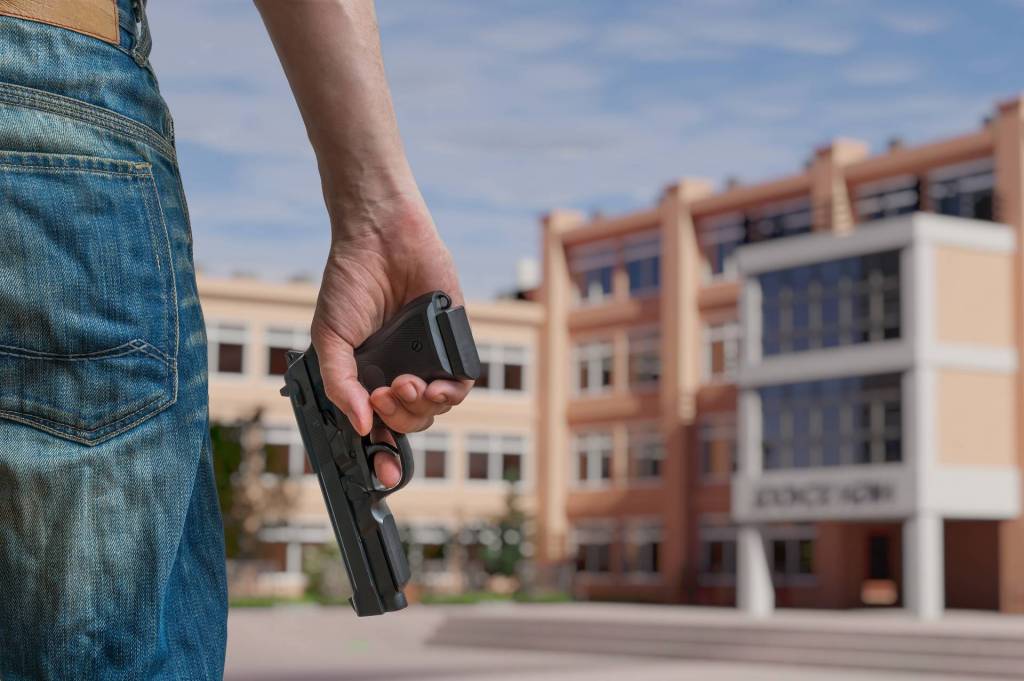Is it Possible to Face Criminal Charges Under California’s Red Flag Laws?
California’s Red Flag Laws, officially known as Gun Violence Restraining Orders (GVROs), are designed to prevent potential gun violence by temporarily restricting an individual’s access to firearms. While these laws aim to enhance public safety, they can also lead to arrest and criminal charges under certain circumstances. If a Red Flag petition has been filed against you, a Los Angeles criminal defense attorney can advocate for your rights and help you avoid actions that could lead to potentially life-altering criminal charges.
What is California’s Red Flag Law?
California’s Red Flag Law was enacted in response to concerns about mass shootings and deadly gun violence. The law allows certain concerned parties to petition the court for a temporary restriction on an individual’s access to firearms if they can present compelling evidence that the individual may pose a threat. The law is intended to strike a balance between public safety and individual rights, allowing for the short-term removal of firearms when there is credible proof of a potential danger.
The process begins when an authorized party files a petition with the court to temporarily remove firearms from someone they believe could present an immediate danger to the public or themselves. In California, eligible petitioners include spouses, domestic partners, parents, children, other close relatives, employers, police officers, school teachers, and principals. After a petition is filed, the court schedules a hearing where the concerned party presents evidence to support their claim that the person in question, also known as the Respondent, is at risk of harming themselves or others.
How Are GVROs Issued and Enforced?
If the court finds sufficient cause during the hearing, it will grant an order for the Respondent’s firearms to be seized for a certain period. The judge may issue a warrant permitting law enforcement officials to search the Respondent’s residence and property to confiscate weapons, sometimes without prior notice, depending on the nature and immediacy of the threat identified. California law requires the police to arrange for safe storage of the firearm(s) for the order’s duration.
Under state law, a person could be prohibited from purchasing, owning, possessing, or transporting firearms and ammunition for up to five years, with the option for the order to be renewed and extended indefinitely. It’s crucial to note that these orders are temporary and reversible through the court. This system allows concerned individuals to address perceived threats while providing Respondents with the ability to appeal the decision and protect their freedoms.
Potential Criminal Charges Related to Red Flag Laws
Noncompliance with court orders related to Red Flag Laws can result in significant legal consequences, underscoring the importance of understanding and adhering to these requirements. The following are key scenarios where these laws may result in legal ramifications.
Violation of the GVRO
The most direct way California’s Red Flag Laws can lead to criminal charges is through violation of the GVRO itself. If a Red Flag order has been issued against an individual, they are prohibited from possessing firearms and ammunition for as long as the order is active. Coming into possession of any banned items while under a GVRO constitutes a violation of the court order.
Most states with Red Flag laws, including California, will impose criminal penalties for both the illegal possession of a firearm and the violation of a court order. These penalties can include felony charges, which carry significant consequences such as potential imprisonment and long-term impacts on an individual’s rights and opportunities.
Refusal to Report or Surrender Firearms
If ordered by the court, respondents must provide information about all firearms they own. Refusing to disclose this information or providing an incomplete inventory can result in additional charges for noncompliance. When the GVRO is issued, the Respondent must surrender their firearms and ammunition to law enforcement or sell them to a licensed dealer. Failure to follow this requirement is a criminal offense and may result in contempt of court charges or other penalties.
Illegal Firearm Possession
Even if an individual is not actively violating a GVRO, the process of enforcing Red Flag Laws can lead to the discovery of illegally possessed firearms. When law enforcement conducts searches to confiscate firearms under a GVRO, they may uncover weapons that the individual was not legally permitted to own, such as unregistered firearms or those prohibited by other state or federal laws. In such cases, the individual could face criminal charges related to illegal firearm possession, separate from and in addition to any penalties associated with violating the GVRO itself.
However, a recent amendment to California’s penal code that becomes effective in January 2026 could allow individuals to decline to relinquish their firearms or ammunition under their Fifth Amendment right to not incriminate themselves. In these situations, the court may grant immunity so the individual can hand over their weapons and ammo as required by law without incurring charges. Individuals with concerns about this topic should consult a knowledgeable criminal defense attorney promptly after the issuance of the GVRO to understand their rights and take steps to prevent unnecessary legal difficulties.
How Can a Trusted Defense Attorney Protect Your Rights?
An experienced criminal defense attorney from the Miranda Rights Law Firm can provide crucial assistance if you’re facing a Gun Violence Restraining Order (GVRO) or charges related to California’s Red Flag Laws. Attorney Douglas Miranda possesses in-depth knowledge of GVRO laws and can help you understand and comply with the order’s requirements, such as properly surrendering firearms. If applicable, he can work to modify or terminate GVROs based on changed circumstances and fight petitions that involve false reporting or inaccurate information.
In cases involving criminal charges, he can craft a strategic defense tailored to your specific situation, advocate for your interests, and strive to achieve the best possible outcome. When your rights and freedom are at risk, Miranda Rights Law Firm will fight for you. Contact us today at 213-255-5838 to schedule a free, in-depth consultation and learn how we can serve you.





